Wednesday, July 25, 2018
|
| 7:00–9:00 pm |
Reception – By the pool area
|
Thursday, July 26, 2018
|
| 12:00–2:00 pm |
Informal Lunch – By the pool area |
| 2:00–2:30 pm |
Inauguration – Rooms Real III and Real IV
Opening remarks (read full text)
-
Mitsuhiro Furusawa, Deputy Managing Director, IMF
-
 Mitsuhiro Furusawa joined the IMF after a distinguished career in the Japanese government, including several senior positions in the Ministry of Finance in recent years. Immediately before coming to the Fund, he served as Special Advisor to Japanese Prime Minister Shinzo Abe and Special Advisor to the Minister of Finance. Among his recent ministry postings, Mr. Furusawa served as Vice Minister of Finance for International Affairs (2013-2014), Director-General of the Financial Bureau (2012-2013), and Senior Deputy Director-General of the International Bureau (2009-2010). Mitsuhiro Furusawa joined the IMF after a distinguished career in the Japanese government, including several senior positions in the Ministry of Finance in recent years. Immediately before coming to the Fund, he served as Special Advisor to Japanese Prime Minister Shinzo Abe and Special Advisor to the Minister of Finance. Among his recent ministry postings, Mr. Furusawa served as Vice Minister of Finance for International Affairs (2013-2014), Director-General of the Financial Bureau (2012-2013), and Senior Deputy Director-General of the International Bureau (2009-2010).
-
Juan Orlando Hernández, Constitutional President of Honduras
-
Juan Orlando Hernández
Closed session begins, by invitation only – media withdraws
|
| 2:30–4:00 pm |
Session I. Global and Regional Outlook
Speaker:
-
Trevor Alleyne, Assistant Director and Central America Division Chief, IMF (view presentation)
-
 Trevor Alleyne is an Assistant Director and Division Chief for Central America in the Western Hemisphere Department at the International Monetary Fund, serving also as mission chief to Costa Rica. Mr. Alleyne has been at the IMF since 1992, with assignments mainly in the African and Western Hemisphere Departments. Prior to joining the Fund, he was a principal analyst at the U.S. Congressional Budget Office from 1986 to 1992. He holds a B.Sc. from the University of the West Indies, a M.A. from the University of Pennsylvania, and a Ph.D. from the University of Maryland. Trevor Alleyne is an Assistant Director and Division Chief for Central America in the Western Hemisphere Department at the International Monetary Fund, serving also as mission chief to Costa Rica. Mr. Alleyne has been at the IMF since 1992, with assignments mainly in the African and Western Hemisphere Departments. Prior to joining the Fund, he was a principal analyst at the U.S. Congressional Budget Office from 1986 to 1992. He holds a B.Sc. from the University of the West Indies, a M.A. from the University of Pennsylvania, and a Ph.D. from the University of Maryland.
Panelist:
-
Verónica Zavala, General Manager of Country Department for Central America, Mexico, Panama, and the Dominican Republic, IDB
-
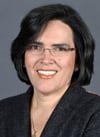 Verónica Zavala is the Manager of the Department of Countries of Central America, Haiti, Mexico, Panama, and the Dominican Republic at the Inter-American Development Bank (IDB). Additionally, she has been the Bank's Representative in Panama since January 2018. Before joining the Bank, she was Sector Manager in the Public-Sector area for Latin America at the World Bank, Minister of Transportation and Communications in Peru, and Secretary of Public Management of the Presidency of the Council of Ministers of Peru, among other positions related to the reform of the state and the promotion of private investment. She is a lawyer from the Pontifical Catholic University of Peru and holds a M.A. in Public Administration from the John F. Kennedy School of Government at Harvard University. Verónica Zavala is the Manager of the Department of Countries of Central America, Haiti, Mexico, Panama, and the Dominican Republic at the Inter-American Development Bank (IDB). Additionally, she has been the Bank's Representative in Panama since January 2018. Before joining the Bank, she was Sector Manager in the Public-Sector area for Latin America at the World Bank, Minister of Transportation and Communications in Peru, and Secretary of Public Management of the Presidency of the Council of Ministers of Peru, among other positions related to the reform of the state and the promotion of private investment. She is a lawyer from the Pontifical Catholic University of Peru and holds a M.A. in Public Administration from the John F. Kennedy School of Government at Harvard University.
Moderator:
-
Marlon Tábora, Honduras Ambassador to the USA
-
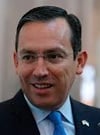 Marlon Tábora is the Honduras Ambassador to the U.S. since April 24, 2017. Previously, he was executive director for Honduras at the IADB and president of the Central Bank (2014-2016). He holds a B.Sc. in mechanical engineering from the Universidad Nacional Autónoma de Honduras (UNAH), a M.A. in international business from Universidad Tecnológica Centroamericana; a M.A. in public policy management from Georgetown University, and PhD. in management from the Catholic University of Honduras. He also holds postgraduate studies in Public Administration from the Kennedy School of Government at Harvard University. Marlon Tábora is the Honduras Ambassador to the U.S. since April 24, 2017. Previously, he was executive director for Honduras at the IADB and president of the Central Bank (2014-2016). He holds a B.Sc. in mechanical engineering from the Universidad Nacional Autónoma de Honduras (UNAH), a M.A. in international business from Universidad Tecnológica Centroamericana; a M.A. in public policy management from Georgetown University, and PhD. in management from the Catholic University of Honduras. He also holds postgraduate studies in Public Administration from the Kennedy School of Government at Harvard University.
Questions and Discussion
|
| 4:00–4:30 pm |
Coffee Break |
| 4:30–6:00 pm |
Session II. Removing Obstacles and Creating Opportunities for Sustainable Growth
Speaker:
-
Luis Miguel Castilla, Manager, Office of Strategic Planning and Development Effectiveness, IDB (view presentation)
-
 Luis Miguel Castilla is the General Manager of the Office of Strategic Planning and Development Effectiveness at the Inter-American Development Bank. Previously, he served as Ambassador of Peru to the United States and Minister of Economy and Finance of Peru. He has close to twenty years of experience at multilateral development banks, holding senior positions at the Andean Development Corporation (CAF), among others. He holds a Ph.D. in Economics from the Johns Hopkins University. Luis Miguel Castilla is the General Manager of the Office of Strategic Planning and Development Effectiveness at the Inter-American Development Bank. Previously, he served as Ambassador of Peru to the United States and Minister of Economy and Finance of Peru. He has close to twenty years of experience at multilateral development banks, holding senior positions at the Andean Development Corporation (CAF), among others. He holds a Ph.D. in Economics from the Johns Hopkins University.
Panelist:
-
Rita Ramalho, Senior Manager, Global Indicators Group, Development Economics Vice-Presidency, World Bank
-
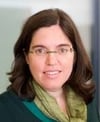 Rita Ramalho is Senior Manager of the World Bank’s Global Indicators Group, which produces the Doing Business report, an annual flagship publication of the World Bank Group. Using objective measures, Doing Business provides an understanding of the local regulatory environment for business in 189 economies around the world. Currently, Ms. Ramalho is also researching the impact of regulations on female labor force participation, tax policy and entrepreneurship, labor regulations, and the size of the informal sector. She holds a Ph.D. in economics from the Massachusetts Institute of Technology (MIT). Rita Ramalho is Senior Manager of the World Bank’s Global Indicators Group, which produces the Doing Business report, an annual flagship publication of the World Bank Group. Using objective measures, Doing Business provides an understanding of the local regulatory environment for business in 189 economies around the world. Currently, Ms. Ramalho is also researching the impact of regulations on female labor force participation, tax policy and entrepreneurship, labor regulations, and the size of the informal sector. She holds a Ph.D. in economics from the Massachusetts Institute of Technology (MIT).
-
Pablo Sanguinetti, Corporate Director, Economic Analysis and Knowledge for Development, Development Bank of Latin America, CAF
-
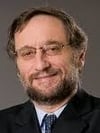 Pablo Sanguinetti is Corporate Director of Economic Analysis and Knowledge for Development at CAF and Professor of Economics at Universidad Torcuato Di Tella in Buenos Aires. His research interest includes international trade and integration, economic development and fiscal federalism. He has published articles in several international journals. He has worked as consultant for the World Bank, Inter-American Development Bank, the Economic Commission for Latin America and the Caribbean and CAF. He has served as Member of the Board of the International Trade Commission of Argentina in 1996-2000. He holds a M.A. and Ph.D. in Economics from the University of California, Los Angeles. Pablo Sanguinetti is Corporate Director of Economic Analysis and Knowledge for Development at CAF and Professor of Economics at Universidad Torcuato Di Tella in Buenos Aires. His research interest includes international trade and integration, economic development and fiscal federalism. He has published articles in several international journals. He has worked as consultant for the World Bank, Inter-American Development Bank, the Economic Commission for Latin America and the Caribbean and CAF. He has served as Member of the Board of the International Trade Commission of Argentina in 1996-2000. He holds a M.A. and Ph.D. in Economics from the University of California, Los Angeles.
Moderator:
-
Roberto Garcia-Saltos, Deputy Chief, Central American Division, IMF
-
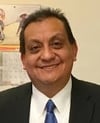 Roberto Garcia-Saltos is the deputy chief in the Central American Division in the Western Hemisphere Department of the IMF, serving also as mission chief for Honduras since August 2015. Prior to 2015 he was a deputy chief of the Economic Modeling Division of the Research Department. Before joining the IMF, he headed the research department at the Central Bank of Ecuador. His research interests include international macroeconomics, structural macro-modeling, linkages between financial and real sector issues, developing forecasting and monetary policy systems and lately the links between crime inequality and growth. He has published in refereed journals and the IMF working papers series. He holds a Ph.D. from Texas A&M University and a M.A. from ITAM. Roberto Garcia-Saltos is the deputy chief in the Central American Division in the Western Hemisphere Department of the IMF, serving also as mission chief for Honduras since August 2015. Prior to 2015 he was a deputy chief of the Economic Modeling Division of the Research Department. Before joining the IMF, he headed the research department at the Central Bank of Ecuador. His research interests include international macroeconomics, structural macro-modeling, linkages between financial and real sector issues, developing forecasting and monetary policy systems and lately the links between crime inequality and growth. He has published in refereed journals and the IMF working papers series. He holds a Ph.D. from Texas A&M University and a M.A. from ITAM.
Questions and Discussion
|
| 7:00–10:00 pm |
Dinner – La Cumbre Restaurant
Introduction:
-
Wilfredo Cerrato, President, Central Bank of Honduras
-
 Wilfredo Cerrato is the President of the Central Bank since January 2018 and Head of the Economic Cabinet since January 2016. He was Minister of Finance between 2012 and 2017. He holds a bachelor degree in Business Administration from Universidad Tecnológica Centroamericana, a post-graduate degree in Finance from the Universidad Católica de Honduras, and a MBA from Instituto Centroamericano de Administración de Empresas INCAE (Nicaragua). Wilfredo Cerrato is the President of the Central Bank since January 2018 and Head of the Economic Cabinet since January 2016. He was Minister of Finance between 2012 and 2017. He holds a bachelor degree in Business Administration from Universidad Tecnológica Centroamericana, a post-graduate degree in Finance from the Universidad Católica de Honduras, and a MBA from Instituto Centroamericano de Administración de Empresas INCAE (Nicaragua).
-
Keynote speaker
Augusto de la Torre, Nonresident Senior Fellow in the Global Economy and Development Program, The Brookings Institution
-
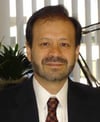 Augusto de la Torre works internationally as a free-lance senior policy consultant, teaches at Columbia University’s School of Public and International Affairs, holds the position of Director of the Economics Research Center at the Universidad de las Américas in Quito, Ecuador, and is a Non-Resident Senior Fellow at the Brookings Institution. He worked for the World Bank occupying various senior roles, including as Chief Economist for Latin America. Prior to that, he served as the Governor of the Central Bank of Ecuador (1993-1996) and as an economist for the IMF (1986-1992). He has published extensively on a broad range of financial, macroeconomic, and economic development topics. He holds M.A. and Ph.D. degrees in Economics from the University of Notre Dame and holds a Licenciatura in Philosophy from the Catholic University of Ecuador. Augusto de la Torre works internationally as a free-lance senior policy consultant, teaches at Columbia University’s School of Public and International Affairs, holds the position of Director of the Economics Research Center at the Universidad de las Américas in Quito, Ecuador, and is a Non-Resident Senior Fellow at the Brookings Institution. He worked for the World Bank occupying various senior roles, including as Chief Economist for Latin America. Prior to that, he served as the Governor of the Central Bank of Ecuador (1993-1996) and as an economist for the IMF (1986-1992). He has published extensively on a broad range of financial, macroeconomic, and economic development topics. He holds M.A. and Ph.D. degrees in Economics from the University of Notre Dame and holds a Licenciatura in Philosophy from the Catholic University of Ecuador.
|
Friday, July 27, 2018
|
| 7:30 am |
Deputy Managing Director High-Level Breakfast – Rooms Real I and II (by invitation only)
|
| 8:45–10:00 am |
Session III. Fintech: International Experience and Challenges
Speaker:
-
Gabriela Andrade, Financial Markets Lead Specialist, IDB (view presentation)
-
 Gabriela Andrade is a Financial Markets Lead Specialist at the Connectivity, Markets and Finance Division of the Inter-American Development Bank (IDB), where she is working in topics related to Fintech, digital currencies, financial inclusion, gender issues in the financial sector and the use of guarantees to scale up private financing for development. Ms. Andrade joined the IDB in 2006 and has had different positions, including coordinator of concessional finance, economic advisor to the Vice-President for Countries, and country economist. Ms. Andrade holds undergraduate and graduate degrees in Economics and International Development from McGill University. Gabriela Andrade is a Financial Markets Lead Specialist at the Connectivity, Markets and Finance Division of the Inter-American Development Bank (IDB), where she is working in topics related to Fintech, digital currencies, financial inclusion, gender issues in the financial sector and the use of guarantees to scale up private financing for development. Ms. Andrade joined the IDB in 2006 and has had different positions, including coordinator of concessional finance, economic advisor to the Vice-President for Countries, and country economist. Ms. Andrade holds undergraduate and graduate degrees in Economics and International Development from McGill University.
Panelist:
-
Frank Hoder, Senior Strategy Consultant, Slalom Consulting
-
 Frank Hoder is currently a management consultant with Slalom, a global firm that supports private and public-sector clients with a unique combination of software engineering, digital design, data analytics, and business advisory services. Previously, he worked in the Strategy and Innovation Division of the Inter-American Investment Corporation (IIC) of the IDB, where he managed a portfolio of innovative initiatives and conducted extensive research on financial technologies and their impact on small and medium-sized enterprises. He is the author of various publications including Harnessing the Fintech Revolution: How Digital Innovations are Revitalizing MSME Finance in Latin America and the Caribbean. He holds a M.S. in Foreign Service from Georgetown University and a B.Sc. in International Business Administration from the University of Richmond. Frank Hoder is currently a management consultant with Slalom, a global firm that supports private and public-sector clients with a unique combination of software engineering, digital design, data analytics, and business advisory services. Previously, he worked in the Strategy and Innovation Division of the Inter-American Investment Corporation (IIC) of the IDB, where he managed a portfolio of innovative initiatives and conducted extensive research on financial technologies and their impact on small and medium-sized enterprises. He is the author of various publications including Harnessing the Fintech Revolution: How Digital Innovations are Revitalizing MSME Finance in Latin America and the Caribbean. He holds a M.S. in Foreign Service from Georgetown University and a B.Sc. in International Business Administration from the University of Richmond.
-
Mariana Escobar, Advisor, Financial Superintendence of Colombia
-
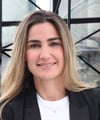 Mariana Escobar Uribe is currently an advisor to the Superintendent of Colombia and a member of Innova, the Superintendence Fintech working group. Before the Superintendence, Ms. Uribe Escobar’s work has been mainly on financial inclusion and sustainable banking. She was a public policy advisor to the Director of the Department for Social Prosperity and was the Deputy Director of Postal Affairs at the Ministry of Information and Communications Technology, from where she supported financial inclusion initiatives and helped Fintech developments in the country. Ms. Escobar holds an undergraduate degree from Bentley University and a Master’s degree from Columbia University. Mariana Escobar Uribe is currently an advisor to the Superintendent of Colombia and a member of Innova, the Superintendence Fintech working group. Before the Superintendence, Ms. Uribe Escobar’s work has been mainly on financial inclusion and sustainable banking. She was a public policy advisor to the Director of the Department for Social Prosperity and was the Deputy Director of Postal Affairs at the Ministry of Information and Communications Technology, from where she supported financial inclusion initiatives and helped Fintech developments in the country. Ms. Escobar holds an undergraduate degree from Bentley University and a Master’s degree from Columbia University.
Moderator:
-
Ana Margoth Arévalo, Executive Secretary of the Central American Council of Superintendents of Banks, Insurance and Other Financial Institutions
-
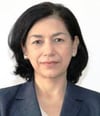 Ana Margoth Arévalo is the Executive Secretary of the Central American Council of Superintendents of Banks, Insurance and Other Financial Institutions since August 2011. She previously served as advisor to the Superintendency of the Financial System of El Salvador. She has a M.A. in economic development and a Ph.D. in economics with a specialty in international economics and econometrics from Vanderbilt University. Ana Margoth Arévalo is the Executive Secretary of the Central American Council of Superintendents of Banks, Insurance and Other Financial Institutions since August 2011. She previously served as advisor to the Superintendency of the Financial System of El Salvador. She has a M.A. in economic development and a Ph.D. in economics with a specialty in international economics and econometrics from Vanderbilt University.
Questions and Discussion
|
| 10:00–11:15 am |
Session IV. Managing the Impacts of Climate Change
Speaker:
-
Stephane Hallegatte, Lead Economist, Climate Change, World Bank (view presentation)
-
 Stephane Hallegatte is the lead economist with the Global Facility for Disaster Reduction and Recovery (GFDRR) at the World Bank. He was a lead author of the 5th Assessment Report of the Intergovernmental Panel on Climate Change (IPCC). He is the author of dozens of articles published in international journals in multiple disciplines and of several books. He also led several World Bank reports including Shock Waves in 2015, and Unbreakable in 2016. He was the team leader for the World Bank Group Climate Change Action Plan, a large internal coordination exercise to determine and explain how the Group will support countries in their implementation of the Paris Agreement. In 2018, he received the Burtoni award for his work on the link between climate change adaptation and poverty reduction. He holds an engineering degree from the Ecole Polytechnique (Paris) and a Ph.D. in economics from the Ecole des Hautes Etudes en Sciences Sociales (Paris). Stephane Hallegatte is the lead economist with the Global Facility for Disaster Reduction and Recovery (GFDRR) at the World Bank. He was a lead author of the 5th Assessment Report of the Intergovernmental Panel on Climate Change (IPCC). He is the author of dozens of articles published in international journals in multiple disciplines and of several books. He also led several World Bank reports including Shock Waves in 2015, and Unbreakable in 2016. He was the team leader for the World Bank Group Climate Change Action Plan, a large internal coordination exercise to determine and explain how the Group will support countries in their implementation of the Paris Agreement. In 2018, he received the Burtoni award for his work on the link between climate change adaptation and poverty reduction. He holds an engineering degree from the Ecole Polytechnique (Paris) and a Ph.D. in economics from the Ecole des Hautes Etudes en Sciences Sociales (Paris).
Panelist:
-
Ian Parry, Fiscal Affairs Department, IMF
-
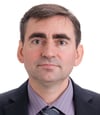 Ian Parry is the Principal Environmental Fiscal Policy Expert in the Fiscal Affairs Department of the IMF. Prior to joining the IMF in 2010, he held the Allen V. Kneese Chair in Environmental Economics at Resources for the Future. His research focuses on analytical and spreadsheet models to quantify for different countries the economic impacts and efficient levels of a wide range of environmental, energy, and transportation policies. His work emphasizes the critical role of fiscal instruments to address externalities and raise revenue. His has co-authored or co-edited several books on energy taxation and fiscal policy to mitigate climate change. He has a Ph.D. in economics from the University of Chicago. Ian Parry is the Principal Environmental Fiscal Policy Expert in the Fiscal Affairs Department of the IMF. Prior to joining the IMF in 2010, he held the Allen V. Kneese Chair in Environmental Economics at Resources for the Future. His research focuses on analytical and spreadsheet models to quantify for different countries the economic impacts and efficient levels of a wide range of environmental, energy, and transportation policies. His work emphasizes the critical role of fiscal instruments to address externalities and raise revenue. His has co-authored or co-edited several books on energy taxation and fiscal policy to mitigate climate change. He has a Ph.D. in economics from the University of Chicago.
-
Amir Jina, University of Chicago, Harris School
-
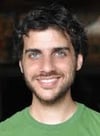
Amir Jina is an Assistant Professor at University of Chicago’s Harris School of Public Policy, researching how economic and social development is shaped by the environment. He uses applied economic techniques, climate science, and remote sensing to understand the impacts of climate in both rich and poor countries, and has conducted fieldwork in India, Bangladesh, Kenya, and Uganda. He is a founding member of the Climate Impact Lab, an interdisciplinary collaboration estimating the Social Cost of Carbon with state-of-the-art empirical methods. He holds a B.A.s in Mathematics and Theoretical Physics from Trinity College, Dublin, a M.A. in Climate and Society, and a Ph.D. in Sustainable Development, both from Columbia University.
Moderator:
-
Marlon Escoto, Presidential Appointee for Climate Change, Honduras
-
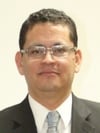 Marlon Escoto is the Presidential Delegate for Climate Change in Honduras. Since February 2012, he was appointed Secretary of State in Education. He has served twice as President Pro Tempore of the Council of Ministers of Education of the Central American Integration System. Prior to that, he alternated his work between teaching agricultural sciences and rector of the National University of Agriculture. He holds a degree of Agronomist Engineer from the National School of Agriculture (ENA), Catacamas, Olancho; a M.A. in Human Settlements and the Environment from the Pontifical Catholic University of Chile, and a Ph.D. in Environmental Science and Technology from University of Granada, Spain. Marlon Escoto is the Presidential Delegate for Climate Change in Honduras. Since February 2012, he was appointed Secretary of State in Education. He has served twice as President Pro Tempore of the Council of Ministers of Education of the Central American Integration System. Prior to that, he alternated his work between teaching agricultural sciences and rector of the National University of Agriculture. He holds a degree of Agronomist Engineer from the National School of Agriculture (ENA), Catacamas, Olancho; a M.A. in Human Settlements and the Environment from the Pontifical Catholic University of Chile, and a Ph.D. in Environmental Science and Technology from University of Granada, Spain.
Questions and Discussion
|
| 11:15–11:45 am |
Closing Remarks:
- Wilfredo Cerrato, President, Central Bank of Honduras
-
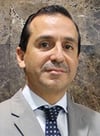 Wilfredo Cerrato is the President of the Central Bank since January 2018 and Head of the Economic Cabinet since January 2016. He was Minister of Finance between 2012 and 2017. He holds a bachelor degree in Business Administration from Universidad Tecnológica Centroamericana, a post-graduate degree in Finance from the Universidad Católica de Honduras, and a MBA from Instituto Centroamericano de Administración de Empresas INCAE (Nicaragua). Wilfredo Cerrato is the President of the Central Bank since January 2018 and Head of the Economic Cabinet since January 2016. He was Minister of Finance between 2012 and 2017. He holds a bachelor degree in Business Administration from Universidad Tecnológica Centroamericana, a post-graduate degree in Finance from the Universidad Católica de Honduras, and a MBA from Instituto Centroamericano de Administración de Empresas INCAE (Nicaragua).
-
Alejandro Werner, Director, Western Hemisphere Department, IMF
-
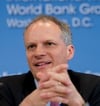 Alejandro Werner assumed his current position as Director of the Western Hemisphere Department of the International Monetary Fund (IMF) in January 2013. A Mexican citizen, Mr. Werner has had distinguished careers in the public and private sectors as well as in academia. He served as Undersecretary of Finance and Public Credit of Mexico (December 2006–August 2010) and Head of Corporate and Investment Banking at BBVA-Bancomer (August 2011 until end-2012). Previously, he was Director of Economic Studies at the Bank of Mexico and Professor at ITAM, Instituto de Empresa, and Yale University. He has published widely. Mr. Werner was named Young Global Leader by the World Economic Forum in 2007. Mr. Werner received his Ph.D. from the Massachusetts Institute of Technology in 1994. Alejandro Werner assumed his current position as Director of the Western Hemisphere Department of the International Monetary Fund (IMF) in January 2013. A Mexican citizen, Mr. Werner has had distinguished careers in the public and private sectors as well as in academia. He served as Undersecretary of Finance and Public Credit of Mexico (December 2006–August 2010) and Head of Corporate and Investment Banking at BBVA-Bancomer (August 2011 until end-2012). Previously, he was Director of Economic Studies at the Bank of Mexico and Professor at ITAM, Instituto de Empresa, and Yale University. He has published widely. Mr. Werner was named Young Global Leader by the World Economic Forum in 2007. Mr. Werner received his Ph.D. from the Massachusetts Institute of Technology in 1994.
-
Olivier Castro, President, Central American Monetary Council and President of the Central Bank of Costa Rica
-
 Olivier Castrois the President of the Central Bank of Costa Rica since May 2014. Mr. Castro has an extensive career at the Central Bank, in which he has held several positions, including managing director, director of the Financial Division, and deputy director of the Monetary Department, among others. While President of the Central Bank, he has also served as president of the Central American Monetary Council (CMCA). Prior being appointed as President of the Central Bank, he has been director of the Board of Banco Nacional de Costa Rica, Superintendent of Pensions, and executive secretary of the CMCA. Mr. Castro holds a bachelor degree in economics from the University of Costa Rica and an M.A. in Economics from the University of Kansas. Olivier Castrois the President of the Central Bank of Costa Rica since May 2014. Mr. Castro has an extensive career at the Central Bank, in which he has held several positions, including managing director, director of the Financial Division, and deputy director of the Monetary Department, among others. While President of the Central Bank, he has also served as president of the Central American Monetary Council (CMCA). Prior being appointed as President of the Central Bank, he has been director of the Board of Banco Nacional de Costa Rica, Superintendent of Pensions, and executive secretary of the CMCA. Mr. Castro holds a bachelor degree in economics from the University of Costa Rica and an M.A. in Economics from the University of Kansas.
-
Ovidio Reyes, President, Central Bank of Nicaragua
-
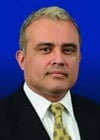 Ovidio Reyesis the President of the Central Bank since January 2014. Previously he was General Manager of the Central Bank (2012-13) and, before that, Chief Economist of the Ministry of Finance (2004-2012). He holds a degree in Economics (1989) from the National Autonomous University of Nicaragua and master degrees in economics from the Pontifical Catholic University of Chile and Pennsylvania State University. Ovidio Reyesis the President of the Central Bank since January 2014. Previously he was General Manager of the Central Bank (2012-13) and, before that, Chief Economist of the Ministry of Finance (2004-2012). He holds a degree in Economics (1989) from the National Autonomous University of Nicaragua and master degrees in economics from the Pontifical Catholic University of Chile and Pennsylvania State University.
|
| 11:45 am–12:15 pm |
Press Conference – Rooms Real I and II
Press Release |
| 12:00–2:00 pm |
Informal Lunch – By the pool area |
| 7:00 pm |
Closing Reception – BCH Social Club |




 Mitsuhiro Furusawa joined the IMF after a distinguished career in the Japanese government, including several senior positions in the Ministry of Finance in recent years. Immediately before coming to the Fund, he served as Special Advisor to Japanese Prime Minister Shinzo Abe and Special Advisor to the Minister of Finance. Among his recent ministry postings, Mr. Furusawa served as Vice Minister of Finance for International Affairs (2013-2014), Director-General of the Financial Bureau (2012-2013), and Senior Deputy Director-General of the International Bureau (2009-2010).
Mitsuhiro Furusawa joined the IMF after a distinguished career in the Japanese government, including several senior positions in the Ministry of Finance in recent years. Immediately before coming to the Fund, he served as Special Advisor to Japanese Prime Minister Shinzo Abe and Special Advisor to the Minister of Finance. Among his recent ministry postings, Mr. Furusawa served as Vice Minister of Finance for International Affairs (2013-2014), Director-General of the Financial Bureau (2012-2013), and Senior Deputy Director-General of the International Bureau (2009-2010). Trevor Alleyne is an Assistant Director and Division Chief for Central America in the Western Hemisphere Department at the International Monetary Fund, serving also as mission chief to Costa Rica. Mr. Alleyne has been at the IMF since 1992, with assignments mainly in the African and Western Hemisphere Departments. Prior to joining the Fund, he was a principal analyst at the U.S. Congressional Budget Office from 1986 to 1992. He holds a B.Sc. from the University of the West Indies, a M.A. from the University of Pennsylvania, and a Ph.D. from the University of Maryland.
Trevor Alleyne is an Assistant Director and Division Chief for Central America in the Western Hemisphere Department at the International Monetary Fund, serving also as mission chief to Costa Rica. Mr. Alleyne has been at the IMF since 1992, with assignments mainly in the African and Western Hemisphere Departments. Prior to joining the Fund, he was a principal analyst at the U.S. Congressional Budget Office from 1986 to 1992. He holds a B.Sc. from the University of the West Indies, a M.A. from the University of Pennsylvania, and a Ph.D. from the University of Maryland. Verónica Zavala is the Manager of the Department of Countries of Central America, Haiti, Mexico, Panama, and the Dominican Republic at the Inter-American Development Bank (IDB). Additionally, she has been the Bank's Representative in Panama since January 2018. Before joining the Bank, she was Sector Manager in the Public-Sector area for Latin America at the World Bank, Minister of Transportation and Communications in Peru, and Secretary of Public Management of the Presidency of the Council of Ministers of Peru, among other positions related to the reform of the state and the promotion of private investment. She is a lawyer from the Pontifical Catholic University of Peru and holds a M.A. in Public Administration from the John F. Kennedy School of Government at Harvard University.
Verónica Zavala is the Manager of the Department of Countries of Central America, Haiti, Mexico, Panama, and the Dominican Republic at the Inter-American Development Bank (IDB). Additionally, she has been the Bank's Representative in Panama since January 2018. Before joining the Bank, she was Sector Manager in the Public-Sector area for Latin America at the World Bank, Minister of Transportation and Communications in Peru, and Secretary of Public Management of the Presidency of the Council of Ministers of Peru, among other positions related to the reform of the state and the promotion of private investment. She is a lawyer from the Pontifical Catholic University of Peru and holds a M.A. in Public Administration from the John F. Kennedy School of Government at Harvard University. Marlon Tábora is the Honduras Ambassador to the U.S. since April 24, 2017. Previously, he was executive director for Honduras at the IADB and president of the Central Bank (2014-2016). He holds a B.Sc. in mechanical engineering from the Universidad Nacional Autónoma de Honduras (UNAH), a M.A. in international business from Universidad Tecnológica Centroamericana; a M.A. in public policy management from Georgetown University, and PhD. in management from the Catholic University of Honduras. He also holds postgraduate studies in Public Administration from the Kennedy School of Government at Harvard University.
Marlon Tábora is the Honduras Ambassador to the U.S. since April 24, 2017. Previously, he was executive director for Honduras at the IADB and president of the Central Bank (2014-2016). He holds a B.Sc. in mechanical engineering from the Universidad Nacional Autónoma de Honduras (UNAH), a M.A. in international business from Universidad Tecnológica Centroamericana; a M.A. in public policy management from Georgetown University, and PhD. in management from the Catholic University of Honduras. He also holds postgraduate studies in Public Administration from the Kennedy School of Government at Harvard University. Luis Miguel Castilla is the General Manager of the Office of Strategic Planning and Development Effectiveness at the Inter-American Development Bank. Previously, he served as Ambassador of Peru to the United States and Minister of Economy and Finance of Peru. He has close to twenty years of experience at multilateral development banks, holding senior positions at the Andean Development Corporation (CAF), among others. He holds a Ph.D. in Economics from the Johns Hopkins University.
Luis Miguel Castilla is the General Manager of the Office of Strategic Planning and Development Effectiveness at the Inter-American Development Bank. Previously, he served as Ambassador of Peru to the United States and Minister of Economy and Finance of Peru. He has close to twenty years of experience at multilateral development banks, holding senior positions at the Andean Development Corporation (CAF), among others. He holds a Ph.D. in Economics from the Johns Hopkins University. Rita Ramalho is Senior Manager of the World Bank’s Global Indicators Group, which produces the Doing Business report, an annual flagship publication of the World Bank Group. Using objective measures, Doing Business provides an understanding of the local regulatory environment for business in 189 economies around the world. Currently, Ms. Ramalho is also researching the impact of regulations on female labor force participation, tax policy and entrepreneurship, labor regulations, and the size of the informal sector. She holds a Ph.D. in economics from the Massachusetts Institute of Technology (MIT).
Rita Ramalho is Senior Manager of the World Bank’s Global Indicators Group, which produces the Doing Business report, an annual flagship publication of the World Bank Group. Using objective measures, Doing Business provides an understanding of the local regulatory environment for business in 189 economies around the world. Currently, Ms. Ramalho is also researching the impact of regulations on female labor force participation, tax policy and entrepreneurship, labor regulations, and the size of the informal sector. She holds a Ph.D. in economics from the Massachusetts Institute of Technology (MIT). Pablo Sanguinetti is Corporate Director of Economic Analysis and Knowledge for Development at CAF and Professor of Economics at Universidad Torcuato Di Tella in Buenos Aires. His research interest includes international trade and integration, economic development and fiscal federalism. He has published articles in several international journals. He has worked as consultant for the World Bank, Inter-American Development Bank, the Economic Commission for Latin America and the Caribbean and CAF. He has served as Member of the Board of the International Trade Commission of Argentina in 1996-2000. He holds a M.A. and Ph.D. in Economics from the University of California, Los Angeles.
Pablo Sanguinetti is Corporate Director of Economic Analysis and Knowledge for Development at CAF and Professor of Economics at Universidad Torcuato Di Tella in Buenos Aires. His research interest includes international trade and integration, economic development and fiscal federalism. He has published articles in several international journals. He has worked as consultant for the World Bank, Inter-American Development Bank, the Economic Commission for Latin America and the Caribbean and CAF. He has served as Member of the Board of the International Trade Commission of Argentina in 1996-2000. He holds a M.A. and Ph.D. in Economics from the University of California, Los Angeles. Roberto Garcia-Saltos is the deputy chief in the Central American Division in the Western Hemisphere Department of the IMF, serving also as mission chief for Honduras since August 2015. Prior to 2015 he was a deputy chief of the Economic Modeling Division of the Research Department. Before joining the IMF, he headed the research department at the Central Bank of Ecuador. His research interests include international macroeconomics, structural macro-modeling, linkages between financial and real sector issues, developing forecasting and monetary policy systems and lately the links between crime inequality and growth. He has published in refereed journals and the IMF working papers series. He holds a Ph.D. from Texas A&M University and a M.A. from ITAM.
Roberto Garcia-Saltos is the deputy chief in the Central American Division in the Western Hemisphere Department of the IMF, serving also as mission chief for Honduras since August 2015. Prior to 2015 he was a deputy chief of the Economic Modeling Division of the Research Department. Before joining the IMF, he headed the research department at the Central Bank of Ecuador. His research interests include international macroeconomics, structural macro-modeling, linkages between financial and real sector issues, developing forecasting and monetary policy systems and lately the links between crime inequality and growth. He has published in refereed journals and the IMF working papers series. He holds a Ph.D. from Texas A&M University and a M.A. from ITAM. Wilfredo Cerrato is the President of the Central Bank since January 2018 and Head of the Economic Cabinet since January 2016. He was Minister of Finance between 2012 and 2017. He holds a bachelor degree in Business Administration from Universidad Tecnológica Centroamericana, a post-graduate degree in Finance from the Universidad Católica de Honduras, and a MBA from Instituto Centroamericano de Administración de Empresas INCAE (Nicaragua).
Wilfredo Cerrato is the President of the Central Bank since January 2018 and Head of the Economic Cabinet since January 2016. He was Minister of Finance between 2012 and 2017. He holds a bachelor degree in Business Administration from Universidad Tecnológica Centroamericana, a post-graduate degree in Finance from the Universidad Católica de Honduras, and a MBA from Instituto Centroamericano de Administración de Empresas INCAE (Nicaragua). Augusto de la Torre works internationally as a free-lance senior policy consultant, teaches at Columbia University’s School of Public and International Affairs, holds the position of Director of the Economics Research Center at the Universidad de las Américas in Quito, Ecuador, and is a Non-Resident Senior Fellow at the Brookings Institution. He worked for the World Bank occupying various senior roles, including as Chief Economist for Latin America. Prior to that, he served as the Governor of the Central Bank of Ecuador (1993-1996) and as an economist for the IMF (1986-1992). He has published extensively on a broad range of financial, macroeconomic, and economic development topics. He holds M.A. and Ph.D. degrees in Economics from the University of Notre Dame and holds a Licenciatura in Philosophy from the Catholic University of Ecuador.
Augusto de la Torre works internationally as a free-lance senior policy consultant, teaches at Columbia University’s School of Public and International Affairs, holds the position of Director of the Economics Research Center at the Universidad de las Américas in Quito, Ecuador, and is a Non-Resident Senior Fellow at the Brookings Institution. He worked for the World Bank occupying various senior roles, including as Chief Economist for Latin America. Prior to that, he served as the Governor of the Central Bank of Ecuador (1993-1996) and as an economist for the IMF (1986-1992). He has published extensively on a broad range of financial, macroeconomic, and economic development topics. He holds M.A. and Ph.D. degrees in Economics from the University of Notre Dame and holds a Licenciatura in Philosophy from the Catholic University of Ecuador. Gabriela Andrade is a Financial Markets Lead Specialist at the Connectivity, Markets and Finance Division of the Inter-American Development Bank (IDB), where she is working in topics related to Fintech, digital currencies, financial inclusion, gender issues in the financial sector and the use of guarantees to scale up private financing for development. Ms. Andrade joined the IDB in 2006 and has had different positions, including coordinator of concessional finance, economic advisor to the Vice-President for Countries, and country economist. Ms. Andrade holds undergraduate and graduate degrees in Economics and International Development from McGill University.
Gabriela Andrade is a Financial Markets Lead Specialist at the Connectivity, Markets and Finance Division of the Inter-American Development Bank (IDB), where she is working in topics related to Fintech, digital currencies, financial inclusion, gender issues in the financial sector and the use of guarantees to scale up private financing for development. Ms. Andrade joined the IDB in 2006 and has had different positions, including coordinator of concessional finance, economic advisor to the Vice-President for Countries, and country economist. Ms. Andrade holds undergraduate and graduate degrees in Economics and International Development from McGill University. Frank Hoder is currently a management consultant with Slalom, a global firm that supports private and public-sector clients with a unique combination of software engineering, digital design, data analytics, and business advisory services. Previously, he worked in the Strategy and Innovation Division of the Inter-American Investment Corporation (IIC) of the IDB, where he managed a portfolio of innovative initiatives and conducted extensive research on financial technologies and their impact on small and medium-sized enterprises. He is the author of various publications including Harnessing the Fintech Revolution: How Digital Innovations are Revitalizing MSME Finance in Latin America and the Caribbean. He holds a M.S. in Foreign Service from Georgetown University and a B.Sc. in International Business Administration from the University of Richmond.
Frank Hoder is currently a management consultant with Slalom, a global firm that supports private and public-sector clients with a unique combination of software engineering, digital design, data analytics, and business advisory services. Previously, he worked in the Strategy and Innovation Division of the Inter-American Investment Corporation (IIC) of the IDB, where he managed a portfolio of innovative initiatives and conducted extensive research on financial technologies and their impact on small and medium-sized enterprises. He is the author of various publications including Harnessing the Fintech Revolution: How Digital Innovations are Revitalizing MSME Finance in Latin America and the Caribbean. He holds a M.S. in Foreign Service from Georgetown University and a B.Sc. in International Business Administration from the University of Richmond. Mariana Escobar Uribe is currently an advisor to the Superintendent of Colombia and a member of Innova, the Superintendence Fintech working group. Before the Superintendence, Ms. Uribe Escobar’s work has been mainly on financial inclusion and sustainable banking. She was a public policy advisor to the Director of the Department for Social Prosperity and was the Deputy Director of Postal Affairs at the Ministry of Information and Communications Technology, from where she supported financial inclusion initiatives and helped Fintech developments in the country. Ms. Escobar holds an undergraduate degree from Bentley University and a Master’s degree from Columbia University.
Mariana Escobar Uribe is currently an advisor to the Superintendent of Colombia and a member of Innova, the Superintendence Fintech working group. Before the Superintendence, Ms. Uribe Escobar’s work has been mainly on financial inclusion and sustainable banking. She was a public policy advisor to the Director of the Department for Social Prosperity and was the Deputy Director of Postal Affairs at the Ministry of Information and Communications Technology, from where she supported financial inclusion initiatives and helped Fintech developments in the country. Ms. Escobar holds an undergraduate degree from Bentley University and a Master’s degree from Columbia University. Ana Margoth Arévalo is the Executive Secretary of the Central American Council of Superintendents of Banks, Insurance and Other Financial Institutions since August 2011. She previously served as advisor to the Superintendency of the Financial System of El Salvador. She has a M.A. in economic development and a Ph.D. in economics with a specialty in international economics and econometrics from Vanderbilt University.
Ana Margoth Arévalo is the Executive Secretary of the Central American Council of Superintendents of Banks, Insurance and Other Financial Institutions since August 2011. She previously served as advisor to the Superintendency of the Financial System of El Salvador. She has a M.A. in economic development and a Ph.D. in economics with a specialty in international economics and econometrics from Vanderbilt University. Stephane Hallegatte is the lead economist with the Global Facility for Disaster Reduction and Recovery (GFDRR) at the World Bank. He was a lead author of the 5th Assessment Report of the Intergovernmental Panel on Climate Change (IPCC). He is the author of dozens of articles published in international journals in multiple disciplines and of several books. He also led several World Bank reports including Shock Waves in 2015, and Unbreakable in 2016. He was the team leader for the World Bank Group Climate Change Action Plan, a large internal coordination exercise to determine and explain how the Group will support countries in their implementation of the Paris Agreement. In 2018, he received the Burtoni award for his work on the link between climate change adaptation and poverty reduction. He holds an engineering degree from the Ecole Polytechnique (Paris) and a Ph.D. in economics from the Ecole des Hautes Etudes en Sciences Sociales (Paris).
Stephane Hallegatte is the lead economist with the Global Facility for Disaster Reduction and Recovery (GFDRR) at the World Bank. He was a lead author of the 5th Assessment Report of the Intergovernmental Panel on Climate Change (IPCC). He is the author of dozens of articles published in international journals in multiple disciplines and of several books. He also led several World Bank reports including Shock Waves in 2015, and Unbreakable in 2016. He was the team leader for the World Bank Group Climate Change Action Plan, a large internal coordination exercise to determine and explain how the Group will support countries in their implementation of the Paris Agreement. In 2018, he received the Burtoni award for his work on the link between climate change adaptation and poverty reduction. He holds an engineering degree from the Ecole Polytechnique (Paris) and a Ph.D. in economics from the Ecole des Hautes Etudes en Sciences Sociales (Paris). Ian Parry is the Principal Environmental Fiscal Policy Expert in the Fiscal Affairs Department of the IMF. Prior to joining the IMF in 2010, he held the Allen V. Kneese Chair in Environmental Economics at Resources for the Future. His research focuses on analytical and spreadsheet models to quantify for different countries the economic impacts and efficient levels of a wide range of environmental, energy, and transportation policies. His work emphasizes the critical role of fiscal instruments to address externalities and raise revenue. His has co-authored or co-edited several books on energy taxation and fiscal policy to mitigate climate change. He has a Ph.D. in economics from the University of Chicago.
Ian Parry is the Principal Environmental Fiscal Policy Expert in the Fiscal Affairs Department of the IMF. Prior to joining the IMF in 2010, he held the Allen V. Kneese Chair in Environmental Economics at Resources for the Future. His research focuses on analytical and spreadsheet models to quantify for different countries the economic impacts and efficient levels of a wide range of environmental, energy, and transportation policies. His work emphasizes the critical role of fiscal instruments to address externalities and raise revenue. His has co-authored or co-edited several books on energy taxation and fiscal policy to mitigate climate change. He has a Ph.D. in economics from the University of Chicago.
 Marlon Escoto is the Presidential Delegate for Climate Change in Honduras. Since February 2012, he was appointed Secretary of State in Education. He has served twice as President Pro Tempore of the Council of Ministers of Education of the Central American Integration System. Prior to that, he alternated his work between teaching agricultural sciences and rector of the National University of Agriculture. He holds a degree of Agronomist Engineer from the National School of Agriculture (ENA), Catacamas, Olancho; a M.A. in Human Settlements and the Environment from the Pontifical Catholic University of Chile, and a Ph.D. in Environmental Science and Technology from University of Granada, Spain.
Marlon Escoto is the Presidential Delegate for Climate Change in Honduras. Since February 2012, he was appointed Secretary of State in Education. He has served twice as President Pro Tempore of the Council of Ministers of Education of the Central American Integration System. Prior to that, he alternated his work between teaching agricultural sciences and rector of the National University of Agriculture. He holds a degree of Agronomist Engineer from the National School of Agriculture (ENA), Catacamas, Olancho; a M.A. in Human Settlements and the Environment from the Pontifical Catholic University of Chile, and a Ph.D. in Environmental Science and Technology from University of Granada, Spain. Wilfredo Cerrato is the President of the Central Bank since January 2018 and Head of the Economic Cabinet since January 2016. He was Minister of Finance between 2012 and 2017. He holds a bachelor degree in Business Administration from Universidad Tecnológica Centroamericana, a post-graduate degree in Finance from the Universidad Católica de Honduras, and a MBA from Instituto Centroamericano de Administración de Empresas INCAE (Nicaragua).
Wilfredo Cerrato is the President of the Central Bank since January 2018 and Head of the Economic Cabinet since January 2016. He was Minister of Finance between 2012 and 2017. He holds a bachelor degree in Business Administration from Universidad Tecnológica Centroamericana, a post-graduate degree in Finance from the Universidad Católica de Honduras, and a MBA from Instituto Centroamericano de Administración de Empresas INCAE (Nicaragua). Alejandro Werner assumed his current position as Director of the Western Hemisphere Department of the International Monetary Fund (IMF) in January 2013. A Mexican citizen, Mr. Werner has had distinguished careers in the public and private sectors as well as in academia. He served as Undersecretary of Finance and Public Credit of Mexico (December 2006–August 2010) and Head of Corporate and Investment Banking at BBVA-Bancomer (August 2011 until end-2012). Previously, he was Director of Economic Studies at the Bank of Mexico and Professor at ITAM, Instituto de Empresa, and Yale University. He has published widely. Mr. Werner was named Young Global Leader by the World Economic Forum in 2007. Mr. Werner received his Ph.D. from the Massachusetts Institute of Technology in 1994.
Alejandro Werner assumed his current position as Director of the Western Hemisphere Department of the International Monetary Fund (IMF) in January 2013. A Mexican citizen, Mr. Werner has had distinguished careers in the public and private sectors as well as in academia. He served as Undersecretary of Finance and Public Credit of Mexico (December 2006–August 2010) and Head of Corporate and Investment Banking at BBVA-Bancomer (August 2011 until end-2012). Previously, he was Director of Economic Studies at the Bank of Mexico and Professor at ITAM, Instituto de Empresa, and Yale University. He has published widely. Mr. Werner was named Young Global Leader by the World Economic Forum in 2007. Mr. Werner received his Ph.D. from the Massachusetts Institute of Technology in 1994. Olivier Castrois the President of the Central Bank of Costa Rica since May 2014. Mr. Castro has an extensive career at the Central Bank, in which he has held several positions, including managing director, director of the Financial Division, and deputy director of the Monetary Department, among others. While President of the Central Bank, he has also served as president of the Central American Monetary Council (CMCA). Prior being appointed as President of the Central Bank, he has been director of the Board of Banco Nacional de Costa Rica, Superintendent of Pensions, and executive secretary of the CMCA. Mr. Castro holds a bachelor degree in economics from the University of Costa Rica and an M.A. in Economics from the University of Kansas.
Olivier Castrois the President of the Central Bank of Costa Rica since May 2014. Mr. Castro has an extensive career at the Central Bank, in which he has held several positions, including managing director, director of the Financial Division, and deputy director of the Monetary Department, among others. While President of the Central Bank, he has also served as president of the Central American Monetary Council (CMCA). Prior being appointed as President of the Central Bank, he has been director of the Board of Banco Nacional de Costa Rica, Superintendent of Pensions, and executive secretary of the CMCA. Mr. Castro holds a bachelor degree in economics from the University of Costa Rica and an M.A. in Economics from the University of Kansas.  Ovidio Reyesis the President of the Central Bank since January 2014. Previously he was General Manager of the Central Bank (2012-13) and, before that, Chief Economist of the Ministry of Finance (2004-2012). He holds a degree in Economics (1989) from the National Autonomous University of Nicaragua and master degrees in economics from the Pontifical Catholic University of Chile and Pennsylvania State University.
Ovidio Reyesis the President of the Central Bank since January 2014. Previously he was General Manager of the Central Bank (2012-13) and, before that, Chief Economist of the Ministry of Finance (2004-2012). He holds a degree in Economics (1989) from the National Autonomous University of Nicaragua and master degrees in economics from the Pontifical Catholic University of Chile and Pennsylvania State University.